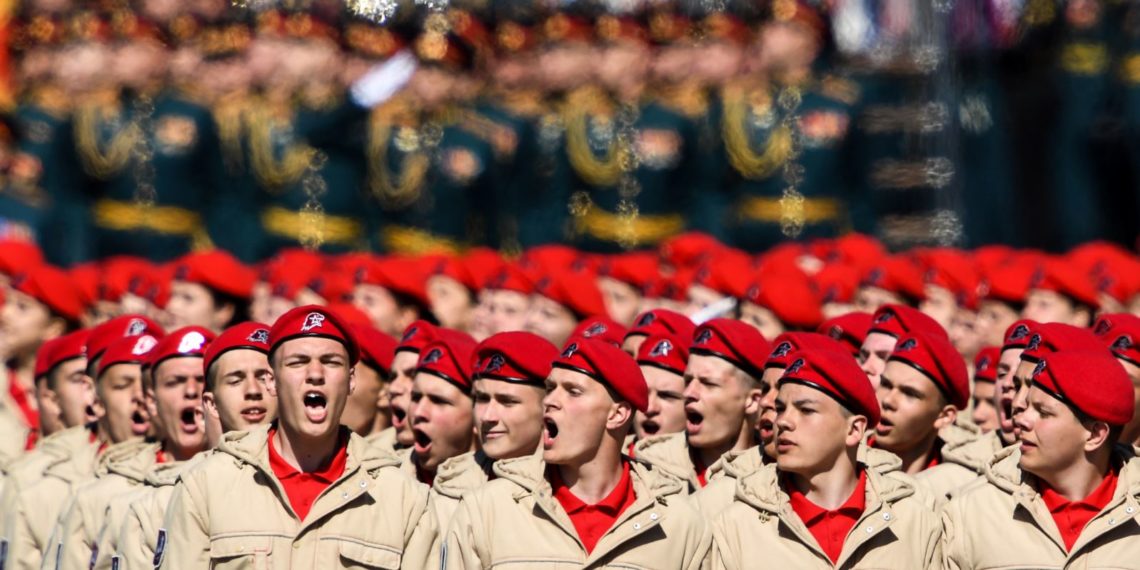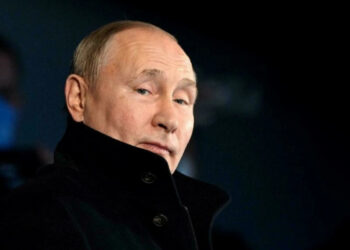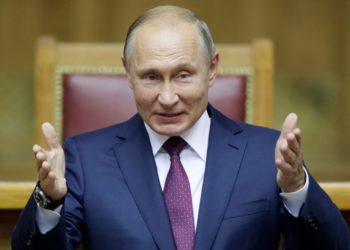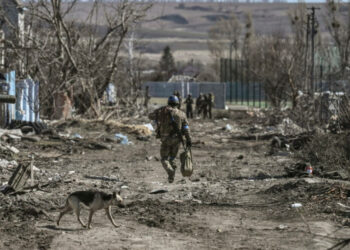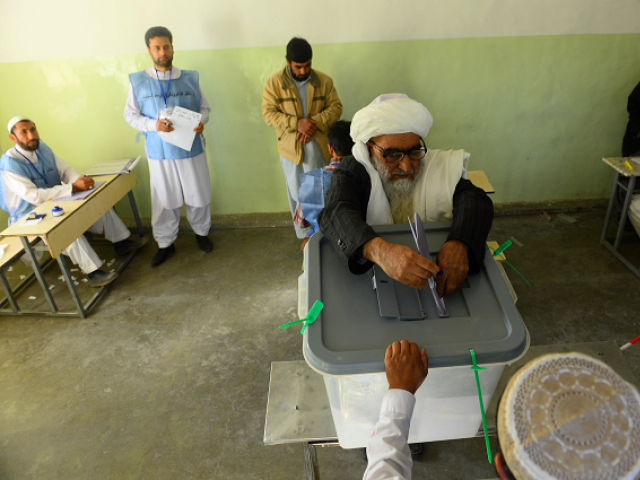There might be a recent deficit of positive news inside Vladimir Putin’s Russia, but the stories connected to the patriotic educational movement Yunarmia are not part of them. Yunarmia, a Russian abbreviation for Youth Army, is a 2016 brainchild of the Ministry of Defense that enjoys exceptional internal popularity and success.
This argument is based on the organization’s membership numbers and branch expansion announced last fall, that point out that in two years of existence, Yunarmia has attracted over 270,000 members aged 8 to 18. An official of the Russian Armed Forces announced that the movement will expand, with branches to be open in all schools across Russia this year.
These numbers, coupled with an impressive array and frequency of activities in the last year alone, paint a pretty intriguing picture of this relatively new Kremlin-engineered youth outreach project.
Beyond the mere descriptive statistics and extensive media coverage in Russia, an external observer will certainly wonder why this particular project is so attractive, what specific social functions it performs, and in what context.
The curiosity is worthwhile, especially when encountering headlines like “Yunarmia has arrived in Washington” on the organization’s website, describing the opening of a new branch called “Varyag” (Viking), in a ceremony presided by Ambassador Anatoly Antonov himself.
Pull Factors
In a well-argued article, Jamestown Foundation’s researcher Sergey Sukhankin presents several reasons why Yunarmia seems to be attractive for Russian youth and their parents. Sukhankin lists the avoidance of Soviet “narrow mindedness,” the movement’s inclusion of various public figures with different backgrounds – from the military establishment to sport celebrities – the calculated nature of state propaganda strategy since 2013, and the declaration of highly honorable goals pertaining to fostering and promoting Russian patriotism as key ingredients of success.

He is absolutely right that these aspects are crucial to the movement’s phenomenal growth. To understand the full scope and nature of the success, one might add the following factors: the upsurge of state’s conspiracy theory-driven propaganda to promote a “besieged fortress” mentality, where Mother Russia is portrayed as an eternal victim in constant need of mobilization of its faithful defenders – young and old. After all, subversion plots and plans crafted by the state enemies from abroad, the local “fifth column,” “mirovaya zakulisa” (global shadowy powerbrokers), and various ethnic, sexual, and ideological minorities lay as obstacles on the path of the country’s march towards a brighter future.
The propaganda also calls for the assembly and early indoctrination of future guardians of the present status quo, that represents a stark contrast to the chaos of the wild 1990s.
In addition, in a society heavily influenced by the norms and values of collectivism and paternalism where the 1990s entropy is viewed as the ultimate symbol of national humiliation and decay, membership and active participation in a large, legitimate, and state-backed collective body is perceived as positive. One that fills in the void left by the ex-Soviet movements, such as Pioneria and subsequent Komsomol, and serves as a counterweight to the unchecked extremes of egotistic individualism and gluttonous consumerism displayed by the country’s oligarchy.
In essence, Yunarmia benefits from the need of continuity and urge to reconnect with familiar social organization models from the Soviet past, without carrying the Communist ideological baggage.
In other words, the movement resembles well-known structures, but allows Kremlin elites to use it as a vessel to be filled with the new state “quasi-ideology,” centered on conservative religious values, defined gender roles, and a blatant display of military power.
Such a vessel is also well-compatible with the already established organizational infrastructure with pronounced militaristic overtones, such as the Combat Brotherhood that allows for the use of former Afghan and Chechen war veterans as instructors and transmission of their knowledge, skills, and experience to the movement’s young recruits.
‘Swiss Tool’ for Multifunctional Social Engineering
In terms of utility, it seems that Yunarmia resembles a multifunctional Swiss tool in the hands of contemporary Russian political and military elites, as it achieves several purposes at the same time.
Beyond being an instrument of mass youth indoctrination, discipline, and health status improvement, the movement is part of Russia’s defense establishment’s strategy to scout for talent. It does so especially in the fields of science, technology, engineering, mathematics, and cybersecurity.
Mass early enrollment guarantees a substantial pool of candidates for future cyber and signal intelligence warriors. The Russian military elite views this as strategically crucial in future information-centric warfare.
In the same vein, it also serves as a career orientation mechanism that fosters interest and later channels the much-needed human resource towards the substantial Russian military-industrial complex. A freshly unveiled initiative called “Yunarmeets in the profession,” that aims to create partnerships with leading military producers is an illustrative example to that end.
The political elites in Moscow see this as an ideological “cognitive shield” that anchors the key tenets of the new state quasi-ideology at an early stage before any other “decadent” ideas reach the young minds.
Similarly, they use it as a way of early age elite pre-selection and, interestingly, as a regional integration tool for cohesion between the national core and geographic periphery based on loyalty, strength, and stamina.
These are encouraged and rewarded not only by symbolic means, but also via the provision of tangible benefits in the form of added points to their college entrance exams results if they decide to pursue “civilian” majors, and a positive letter of recommendation in case they choose to pursue military higher education. In both scenarios, the Yunarmia members are offered discernable privileges over their non-member peers.
Paranoid Climate
In the current context of state-sponsored paranoia, that is engaged in a constant search of internal and external subversives and sees spies everywhere, it is quite logical to expect that a mass “patriotic” youth movement with a primary focus on state’s defense will fare largely well.
Such a multifunctional social engineering tool is simply the right fit for an increasingly militarized youth sought to be commanded by elites with military or security services backgrounds.
More than 20 schoolchildren joined ranks of Yunarmia in village of Egorlyk | RMW map: https://t.co/63N6YN5QzA | Src: https://t.co/6Q7JD1ytYo pic.twitter.com/Kz7DqSqYsL
— russiamilitarywatch (@russiamilitaryw) February 3, 2019
With expectations that the up and coming Yunarmia members will be loyal guardians of the “sovereign democracy” under the guidance and watchful gaze of Putin and his closest circle (and possible successors), the leadership of the organization can be quite optimistic.
Not only the current Kremlin chiefs’ mass youth projects plans and ambitions are the sole guarantee for success, but also the continuous upward demand for stability, order, and a “strong hand” that will ensure it. In such circumstances, a disciplined, trained, and loyal group of young Russians will always be welcome by the next stability guarantor, whoever he might be. After all, the very project is a symbol of continuity and stability itself.
Finally, when the military-patriotic education is cleverly redesigned in a cool and attractive form, Russia expert Mark Galeotti’s claim that “Russia’s hipster nationalism works” is correct, and we can all agree it works rather well.
Disclaimer: The views and opinions expressed here are those of the author and do not necessarily reflect the editorial position of The Globe Post.

